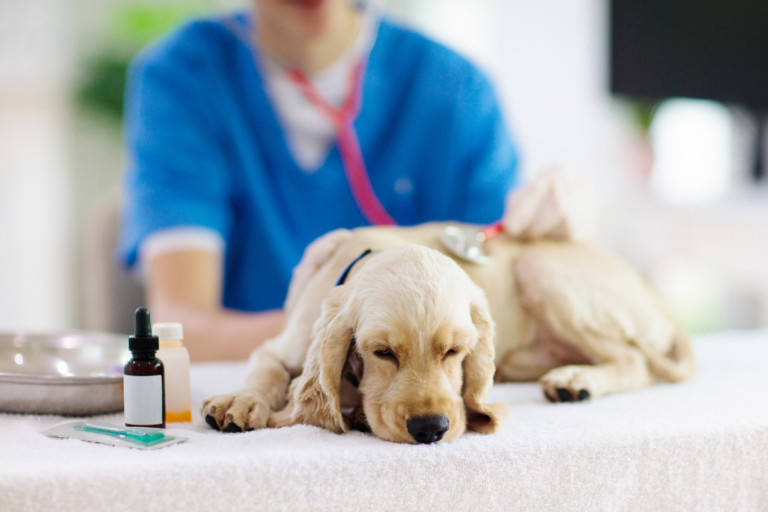Bark Bright, Bark Right: How Kennel Club Health Checker Can Help
DNA Testing for Dogs
Understanding Dog DNA Tests
Hey, fellow dog lovers! Knowing our dog’s genetic makeup isn’t just for the pros—it’s for all of us looking to give our pups the best lives possible. Dog DNA tests are like cracking open a mystery novel—full of twists and turns about our four-legged pals’ history and health. These little tests spill the beans on our dog’s breed mix, health quirks, and sometimes even spill the tea on how old they really are!
There’s a bunch of companies diving into the dog DNA scene. Wisdom Panel, for instance, has a database covering 365 different breeds—talk about variety! Then there’s Embark®, with over 350 breeds, and Ancestry, which tops them all with 400 breeds. In the accuracy showdown, Wisdom Panel struts in with 98% while Embark® nudges ahead with 99% when it comes to figuring out your dog’s breeds.
| DNA Test | Breed Database | Accuracy Rate |
|---|---|---|
| Wisdom Panel | 365+ breeds | 98% |
| Embark® | 350+ breeds | 99% |
| Ancestry | 400+ breeds | N/A |
Understanding these tests lets us make smart decisions about our pooch’s health. Curious about breed-related health issues? Don’t miss out on our handy breed-specific health advice.
Benefits of Dog DNA Testing
DNA testing for dogs isn’t just for the breed detectives amongst us—it’s like a superhero’s toolkit for battling potential health villains. Armed with a DNA test, we can spot over 265 genetic health conditions with Wisdom Panel, or dive into more than 250 conditions flagged by Embark® using over 230,000 genetic markers. Yeah, it’s as cool as it sounds! All this detective work lets us stay a step ahead of any health surprises, helping our pets lead longer, wag-filled lives.
And it doesn’t stop there. Embark® has a nifty Dog Age Test too—perfect for those furballs we adopt whose birth years remain a mystery. So whether you’re a breeder or crazy about your rescue mutt, these tests are a win-win for your peace of mind.
| DNA Test | Genetic Health Conditions | Genetic Markers |
|---|---|---|
| Wisdom Panel | 265+ | N/A |
| Embark® | 250+ | 230,000+ |
Organizations like the Kennel Club are on board too, making sure puppies are bred with the best start in life. They offer DNA screenings that help breeders dodge the bullet of inherited health issues.
For both breeders and dog parents, breed-specific DNA tests let you check out several potential genetic hiccups at once. It’s all about giving our furry family members and their future pups the healthiest, waggliest start possible. Check out our guide on the importance of genetic testing to get the lowdown on why it’s such a game-changer.
The Kennel Club Health Checker
When it comes to making sure our dogs are fit as a fiddle, the Kennel Club Health Checker is like having a vet on call from your smartphone. It’s got health guidelines down pat, plus breed health coordinators ready to give your pooch the TLC they deserve.
Health Testing Guidelines
The Kennel Club’s got the 411 on all the health checks and screenings your pup might need. Coming straight from the breed clubs and given the stamp of approval by The Kennel Club’s crew, these guidelines are a go-to for keeping dogs sprightly and bright-eyed (The Kennel Club).
Now, let’s chew the fat: different breeds have their quirks and need special tests. Take a German Shepherd – they might need a lookout for hip dysplasia. On the other paw, Cavalier King Charles Spaniels could need a heart check-up (cavalier health). And don’t even get us started on all that DNA jazz; it’s a lifesaver for catching any genetic gremlins (dog diseases, dog diabetes symptoms).
Breeders can snag a treasure trove of tips and tricks here, with info on DNA testing and screening schemes, all aimed at keeping tails wagging.
| Breed | Recommended Health Tests |
|---|---|
| German Shepherd | Hip and Elbow Dysplasia |
| Cavalier King Charles Spaniel | Heart Check, Eye Check |
| French Bulldog | Breathing Issues, Spine Stuff |
| Labrador Retriever | Hips, Elbow Check, PRA (Progressive Retinal Atrophy) |
Breed Health Coordinators
When it comes to knowing what’s what with dog health, breed health coordinators are like the superheroes without capes. They’re on standby to help sort through any genetic head-scratchers that pop up in your breed of choice. Reaching them is a breeze; just drop by the Breeds A to Z on the Kennel Club’s site (The Kennel Club).
These coordinators are like the bridge between dog-loving folks and the breeding world. Say you’ve got a Dachshund, and want the lowdown on dodging back issues – a call to your coordinator might just save a rain of vet visits (dachshund health problems).
They’re also the guardians of all the latest buzz on dog health and jump into action for breed health, helping out individual owners and breeders alike. With their expertise on tap, keeping your pup in tip-top shape is a walk in the park.
For more scoop on what’s bugging certain breeds and how to deal with it, browse through our guides like German Shepherd hip dysplasia and French Bulldog health problems.
By tapping into the Kennel Club Health Checker and chatting with breed health coordinators, we’re setting out on a path to keep our beloved four-legged pals bouncing happily ever after. Together, we can ensure they live long, lively, and joy-filled lives.
Genetic Health Conditions in Dogs
Our four-legged pals need us to understand their genetic health, so we can keep their tails wagging for years to come. Genetic quirks in dogs can be a real bump in their road, affecting their adventures and playtimes. So, let’s get our paws into some common genetic health conditions and why a little DNA check-up can be a lifesaver.
Common Genetic Health Conditions
Just like how each dog has its unique bark and wag, their health conditions can vary with their breed. Check out a few genetic health conditions that tend to pop up and make their presence known in certain breeds.
| Condition | Description | Affected Breeds |
|---|---|---|
| Hip Dysplasia | When the hip joint isn’t formed just right, it can lead to arthritis and pain. | German Shepherd, Labrador, Golden Retriever |
| Progressive Retinal Atrophy (PRA) | A nasty eye disorder that leads to blindness. | Pomeranian, Beagle |
| Mitral Valve Disease | When the heart’s mitral valve wears out, it can lead to heart woes. | Cavalier King Charles Spaniel |
| Epilepsy | Brain hiccups causing seizures. | Dachshund, Beagle |
These pups just got a sneak peek. Curious about more? The Kennel Club Health Checker holds a treasure chest of info on breed-specific health worries. Hit up the Health Test Results Finder to see DNA test results—because knowledge is power.
Importance of Genetic Testing
Genetic testing is like getting your dog’s fortune told, but for health. And the good news? It gives us owners the upper paw in managing their health better.
Benefits of Genetic Testing:
- Get Ahead of the Game: Spotting health issues early is easier when you know what runs in their genes. This means quick actions and maybe a little less woofie drama.
- Smart Breeding: Breeders can make educated choices to avoid passing on bummers from Mom or Dad dog. The Kennel Club’s Health Standard lists what health tests are needed for each breed. It’s like a checklist to avoid puppy heartbreaks.
- Healthcare with a Twist: Imagine having a doggie healthcare plan that’s as unique as their snout. With genetic insights, you can say bye-bye to one-size-fits-all vet care.
According to PetMD, kits like Wisdom Panel and Embark can snoop into over 250 health conditions. It’s like a magic wand for worried dog owners.
For tips on tackling ordinary dog health hiccups, check out our bits on health testing for breeders and specific health concerns in dogs. Let’s work together to keep our dogs bouncing, barking, and bugging for walks!
Health Testing for Breeders
Jumping into the world of breeding is as thrilling as watching a puppy chase its tail! But before those adorable bundles arrive, we’ve got to ensure everything’s tip-top. The Kennel Club has our back with a ton of resources every breeder can use to make sure their pups are the picture of health.
Breeder Health Testing Steps
The Kennel Club’s got a playbook for newbies to tackle health tests tailored to their furry friends. Here’s the lowdown on steps every breeder should follow:
-
Pick the Right Health Tests: First, pinpoint which tests belong to your dog’s breed. The Kennel Club suggests tests approved by smart folks in breed clubs. This way, we know about any health quirks that might pop up in our pups.
-
Get That DNA Testing Smackdown: DNA testing is no joke. It’s the secret weapon for spotting genetic landmines. The Kennel Club rolls out testing services with groovy, breed-specific deals to check for all sorts of genetic odds and ends.
-
Share Those Results: Got the DNA scoop? Send it to The Kennel Club. Make sure your report has some ID and is from an official lab. If you’re using The Kennel Club’s testing, they can zip results over to your dog’s online profile.
-
Stick to Health Rules: Keep an eye on the guidelines from breed clubs and health coordinators. It’s all about keeping a close watch on genetic roadblocks.
-
Record Everything: Jot down every detail from tests and anything health-related. These notes are gold for future breeding plans or to enlighten future pet parents.
Here’s a handy chart of some health tests popular with certain breeds:
| Breed | Common Health Tests |
|---|---|
| Cavalier King Charles Spaniel | Mitral Valve Disease, Syringomyelia, Hip Dysplasia |
| German Shepherd | Hip Dysplasia, Elbow Dysplasia, Degenerative Myelopathy |
| Golden Retriever | Hip Dysplasia, Elbow Dysplasia, Heart Conditions (Subvalvular Aortic Stenosis) |
Making the Most of Health Test Results
Using health test results wisely ensures your breeding game is strong. Wrap your head around these tips to up your breeding skills:
-
Dig into the Results: Give those test results a good look-see to figure out your dogs’ genetic health standings. Scout for any pesky genetic markers.
-
Breed Smart: Use this knowledge to plan pairings wisely. Steer clear of doubling down on any unhealthy genes.
-
Chat with the Pros: Don’t hesitate to ask breed health coordinators or dog health pros for help with those mind-boggling DNA nuggets.
-
Keep Buyers in the Know: Share health test data with potential buyers. This transparency builds trust and shows you care about responsible breeding.
-
Stay Vigilant: After the pups arrive, keep an eye on their well-being. Keep learning and incorporate any new health findings into your program.
Sticking to these steps while using health test results wisely means healthier, more robust dog lineages. Check out our recommendations tailored for your breed: breed-specific health recommendations. And, keep tabs on health topics like cavalier health and french bulldog health problems.
Specific Health Concerns in Dogs
Looking out for your pup’s health is a big part of being a loving pet owner. Our pals at The Kennel Club have some top tips to help us keep our furry buddies feeling tip-top. We’ll be chatting about the health needs of different dog breeds and how to tackle the basics.
Breed-Specific Health Recommendations
The Kennel Club’s got the scoop on health checks tailor-made for each breed. Breed fans themselves have pitched in, with final nods from experts. If you’re worried about your pooch’s health issues, breed health coordinators are your go-to pals. They know the score!
And hey, there’s DNA testing kits now. You can check out what’s brewing genetically in just one go. Here’s a lowdown on some popular breeds and their health checklists:
| Breed | Health Tests | Common Concerns |
|---|---|---|
| Labrador Retriever | Hip Issues, Elbow Troubles, Peepers Check | Labrador health problems |
| German Shepherd | Hip Issues, Elbow Troubles, Back End Woes | German shepherd health problems |
| Bulldog | Airway Snags, Hip Issues | Bulldog health problems |
| Cavalier King Charles Spaniel | Heart Flutter, Brain Pressure | Cavalier health |
Before you think about those cute puppy faces, get a head start on health tests laid out by the Kennel Club Health Standard. They’ve packed it all neatly so you won’t miss a beat.
Addressing Common Health Issues
Dogs can hit snags from their genes, how they live, or just sheer luck. Spotting these early helps keep wagging tails around.
Dental Drama: Brush those chompers regularly and get them professionally cleaned. Keep their smile shiny! More about dog teeth and warding off gum trouble.
Heart Hiccups: Heart worries like dog heart disease are no fun. Regular check-ins with the vet can catch stuff early.
Pudgy Pooches: An overweight pup has a tough time. Good food and fun exercise are its best friends.
Pesky Infections: Shots and regular vet visits can fend off infections. Keep an eye out for tick problems and tummy ringworm.
Metabolic Misfits: Diabetes is a real scare. Look for tell-tale signs and have a chat with your vet.
Belly Bloat: Big pups often deal with bloat, a quick reaction to bloat signs could save a life.
Making sure you’re up-to-date on your dog’s needs and using tools like the Kennel Club Health Checker, keeps your fur buddy in flying form. Stay sharp with expert advice through breed health coordinators and remember: following breed health recommendations is how we show our dogs the love they deserve!
Dental Health in Dogs
Let’s chat about something super important—our dogs’ teeth! Just like us, our pups need a little TLC in the mouth department to stay happy and healthy.
The Importance of Keeping Those Chompers Clean
Believe it or not, a whopping 80% of pups have dental problems by age two, with some like the charming Portuguese Water Dogs being more prone to issues. Slacking off on their dental care can lead to big health problems like dog heart disease and kidney issues.
Why do we need to fuss over their teeth?
- Avoid the Ouchies: Toothaches can make eating a real pain for our four-legged pals.
- Boost Overall Health: Clean mouths mean fewer nasty bugs sneaking into their blood and causing trouble.
- Keep Them Happy: Healthy gnashers contribute to top-notch tail-wagging and general pep.
| Dental Trouble | Percentage of Pups Affected |
|---|---|
| Dogs with Dental Problems by Age 2 | 80% |
| Bubbly Breeds like Portuguese Water Dogs | More Likely |
How to Keep Those Teeth Sparkly
Regular dental care at home, plus some pro help, can make a world of difference. Here’s what we should be doing:
-
Daily Brush Time: Grab some dog-friendly toothpaste and give their teeth a good scrub every day. It’s a team effort, and we’ve got more tips in our section on dog diseases and symptoms.
-
Chew Toys & Treats: Pick up dental chews and toys designed to combat the yucky stuff lurking on their teeth.
-
Vet Visits Are Vital: Make sure you’re scheduling regular cleanings at the vet. They can clean where our scrubbing might miss.
-
Mind Their Meals: A healthy diet isn’t just for their waistline—it can help keep plaque away too. Some foods are specially made to help with this.
-
Check-Ups at Home: Keep an eye out for bad breath or red gums. Noticing these signs early can save a lot of future toothache.
| Ways to Help | Why It Works |
|---|---|
| Daily Brushing | Knocks out plaque |
| Chewy Stuff | Ends oral nasties |
| Vet Cleanings | Gets the tough spots |
| Healthy Diet | Fuels their whole body |
| Spot Checks | Stops problems pronto |
Focus on their dental health, and you’re doing your part to keep away stuff like periodontal disease in dogs or worse, dog heart disease. Want more on this? Peek at our guide on dogs’ teeth for the complete lowdown.






